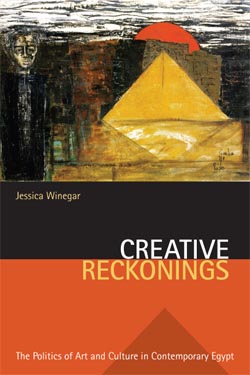Anthropologist Jessica Winegar's book honored as best in Meddle East studies for 2007
|
Jessica Winegar, assistant professor of anthropology, has been awarded the Albert Hourani Book Award for 2007 by the Middle East Studies Association for her recent book, Creative Reckonings: The Politics of Art and Culture in Contemporary Egypt (Stanford University Press, 2006). The award, established in 1991, recognizes outstanding publishing in Middle East studies.
“I wanted to understand how that historical transition, and related contemporary problems facing the Middle East, could be understood through the visual arts and the particular issues that faced the different generations of Egyptian artists.” |
 |
Winegar, who joined Temple’s anthropology faculty in 2007, said she was surprised to receive the award because her book offered an unconventional look at the Middle East, and she was unsure whether it would be well-received. “So many scholars have looked at the Middle East by focusing on religion and gender,” she said. “I think my book is asking different questions by looking at something that hasn’t been examined before.” She wanted to examine the arts and culture of the Middle East and chose Egypt because it has the oldest arts scene in the Arab world, in addition to a famous ancient tradition in the arts.
|
|
Winegar spent 3 1/2 years in the mid- to late 1990s in Egypt researching her book, and said that while she was there, the government began to dramatically increase support for young artists as a way to counteract what was perceived as a threatening Islamic trend or Islamist politics among the country’s youth.
|
|